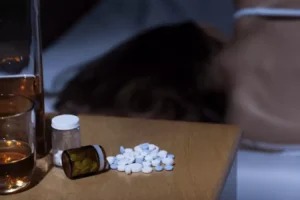
When someone quits drinking without medical support, they face risks like severe dehydration, confusion, or even seizures. Without proper care, these symptoms can quickly escalate and become life-threatening. Conditions like epilepsy, brain injuries, or severe anxiety disorders make the likelihood of an alcoholic seizure much greater. Also, underlying health problems can make withdrawal symptoms a lot harder to manage. Long-term drinking reduces the brain’s ability to function without alcohol, creating a dependency.

Key Takeaways: Symptoms Of Alcoholic Seizures

This reaction can manifest in a variety of symptoms, ranging from mild anxiety and tremors to severe complications like seizures and delirium tremens (DTs). Understanding what happens during this process is crucial for anyone dealing with alcohol dependency or supporting someone who is. By avoiding heavy and binge drinking, individuals can significantly reduce their risk of experiencing seizures related to alcohol withdrawal. Excessive alcohol use can lead to delirium tremens, characterized by severe hyperactive responses, including seizures, which pose serious risks. Alcoholic seizures occur when a person is going through alcohol withdrawal.
How do alcoholic seizures differ from other types of seizures?
- The main management for severe symptoms is long-acting benzodiazepines — typically IV diazepam or IV lorazepam.
- Awareness or consciousness return slowly after the alcohol withdrawal seizure ends.
- But the relationship between alcohol intake and seizures is not straightforward.
- If the answer is “yes” to any of these, it’s important to talk to a healthcare provider before attempting withdrawal on your own.
There are various types of epilepsy, each presenting unique challenges and symptoms. Limit yourself to no more than 3 drinks at any given time and drink slowly. Binge drinking (consuming 4-5 drinks or more in a short period of time) is linked to a higher risk of alcohol-related seizures due to withdrawal effects after you stop drinking. Medical detox is highly intensive inpatient treatment with medically managed services. Alcohol dependence may be treated with various options, including medications.
Treatment Can Be Life Changing. Reach out today.
Additionally, there are studies linking excessive alcohol consumption with an increased risk of developing epilepsy. Please continue reading to learn more about the causes, symptoms, and prevention of alcohol seizures. Approximately one-half of patients with alcohol use disorder who abruptly stop or reduce their alcohol use will develop signs or symptoms of alcohol withdrawal syndrome. The syndrome is due to overactivity of the central and autonomic nervous systems, leading to tremors, insomnia, nausea and vomiting, hallucinations, anxiety, and agitation.


Certain triggers, such as stress, dehydration, lack of sleep, or detoxing without support, can also make seizures more likely. When you stop drinking after prolonged or heavy alcohol use, your body goes through significant changes as it adjusts to the absence of alcohol. Over time, your brain becomes dependent on alcohol to regulate its activity.
To maintain homeostasis in the CNS, inhibitory signals from the GABAergic system are balanced alcohol seizure signs by excitatory neurotransmitters such as glutamate. Alcohol, a CNS depressant, stimulates the GABAergic system and, in acute intoxication, causes a range of clinical manifestations such as disinhibition, euphoria, and sedation. Binge drinking poses a significant risk for individuals with epilepsy. Its consumption can significantly alter brain function, leading to various neurological effects. For individuals with epilepsy, the relationship between alcohol intake and seizure activity is particularly concerning.
- If a patient begins experiencing signs and symptoms of severe withdrawal, including but not limited to seizure, altered mental status, or agitation, they should seek emergency care immediately.
- The safest and best way to go about quitting drinking is to undergo detox treatment.
- Moderate alcohol intake does not usually cause seizures in otherwise healthy individuals.
- Tolerance and physical dependence occur due to compensatory functional changes in the brain.
The mechanism behind AWS involves the brain’s hyperexcitability due to decreased GABA activity and increased glutamate levels after cessation of alcohol intake. This imbalance can trigger generalized tonic-clonic seizures or focal seizures. Medications are important in what is alcoholism managing alcohol seizures during withdrawal.
What Happens During Alcohol Withdrawal
If the depressant effects begin affecting key functions of your body, like your breathing and consciousness, it’s considered alcohol poisoning. Every person is different, so there’s no way to know how much you can drink before you’re at risk of alcohol poisoning. Patients who experience seizures due to alcohol poisoning often require several rounds of testing in the following weeks to track recovery and adjust medications. Alcohol poisoning and seizures are especially likely when BAC exceeds 0.3%.
